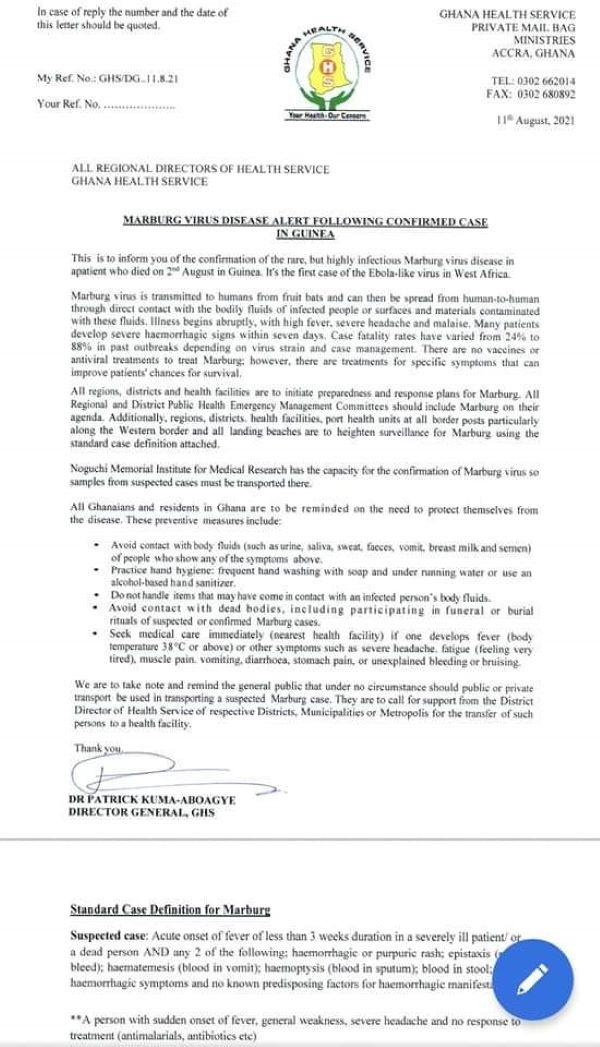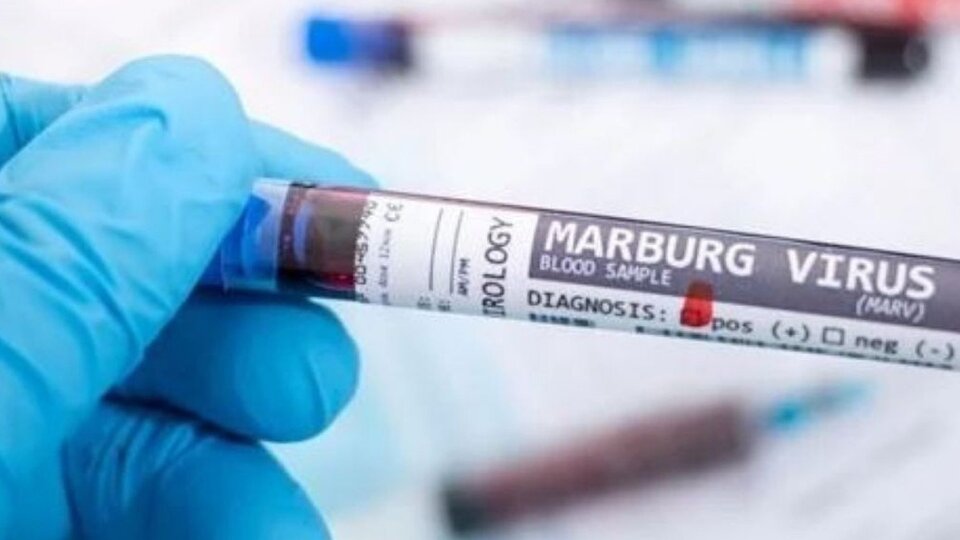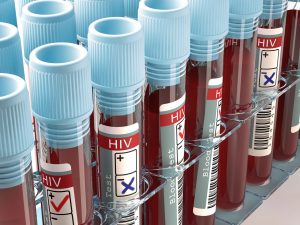The Ghana Health Service (GHS) in a press statement has warned its regional directorates about a possible entry into Ghana of the deadly Marburg Virus Disease which recently killed a patient in south-western Guinea.
According to the communique, the GHS is requesting all Regions, districts and Health facilities to initiate preparedness and response plan for Marburg.
This action follows the Ministry of Health of Guinea informed WHO of a confirmed case of Marburg virus disease (MVD) in Guéckédou Prefecture, Nzérékoré Region, south-western Guinea. The village where the case resided is near both Sierra Leone and Liberian borders. This is the first known case of Marburg virus disease in Guinea and in West Africa.
The case, a male, had onset of symptoms on 25 July. On 1 August he attended a small health facility near his village of residence with symptoms of fever, headache, fatigue, abdominal pain, and gingival hemorrhage. A rapid diagnostic test for malaria was performed which was negative. The patient received supportive care with rehydration, parenteral antibiotics and treatment to manage symptoms.
Background:
Marburg virus disease (MVD) is a highly virulent, epidemic-prone disease associated with high case fatality rates (CFR 24-90%). In the early course of the disease, clinical diagnosis of MVD is difficult to distinguish from other tropical febrile illnesses, because of the similarities in the clinical symptoms. Differential diagnoses to be excluded include, Ebola virus disease, as well as malaria, typhoid fever, leptospirosis, rickettsia infection, and plague. MVD is transmitted by direct contact with the blood, bodily fluids and/or tissues of infected persons or wild animals (e.g. monkeys and fruit bats).
Currently, there is no specific therapeutic or drug approved for MVD. Nevertheless, supportive care including: close monitoring of vital signs, fluid resuscitation, electrolyte and acid base monitoring along with management of co-infections and organ dysfunction, are critical components of care and optimize patient outcomes and survival.
Some monoclonal antibodies (Mabs) are under development and other antivirals are being explored for MVD (e.g. Galidesvir, Favipiravir, Remdesivir) as part of clinical trials, but without clear results in the current moment more evidence and further studies are required. However, these should only be used as part of a randomized controlled trial.
As of 7 August, only one case has been confirmed and all four identified high-risk close contacts are asymptomatic. Investigations are ongoing to identify the source of the infection and additional contacts of the index case.
Guinea has previous experience in managing recurring viral hemorrhagic diseases such as EVD and Lassa fever, but this is the first time that MVD has been reported. The country has a fragile healthcare system which is further exacerbated by multiple disease outbreaks, recurrent epidemics and the COVID-19 pandemic. The response activities to recent outbreaks such as EVD, COVID-19 and Lassa fever likely contributed to early detection and response to Marburg Virus Disease in Guinea.







